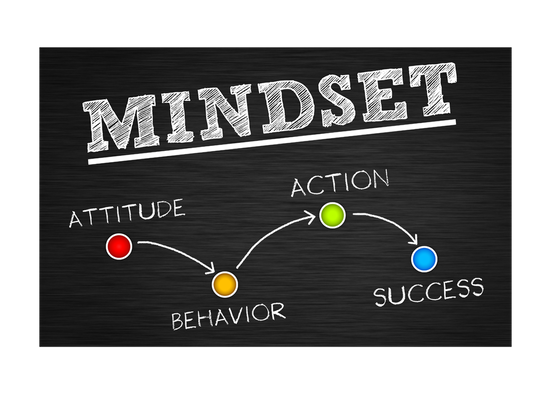Exclusive Access Granted To Our Blog!
|
Anybody can learn the right skills and become an effective business coach as long as they master the coaching mindset. The first step is to assess your own skills and mindset. Then, you know what to work on. Here are the qualities of a great business coach. Empathetic Empathy is absolutely essential for coaching. Empathy is the ability to put yourself in someone else’s shoes. It’s essential for coaching because your job is to help your client and facilitate. You have to take on the part of your client in order to do that. It’s also necessary so you can build the right rapport with your clients. Action-Oriented Coaching clients have a tendency to think and ruminate but not take action. Your role as coach is to gently push them to take action on their plans and ideas. It helps a great deal if you’re action-oriented yourself. If you’re not naturally action-oriented, this is a quality you can nurture and improve. Unafraid of Challenges You need to push your clients to meet their challenges and overcome them. If challenges scare you and keep you up at night, this is an area you’ll need to work on. Think of a challenge as an opportunity for growth and also understand that failure is a valuable learning experience. Organized To manage multiple clients and the work they’re doing, you’ll need to be highly organized. If you’re constantly forgetting where each client is at in their business journey, you won’t be able to serve them well. It’s good to learn some organizational skills and take advantage of software and other tech help to keep you organized. Know Your Strengths Each coach has their own niche that they occupy. You should have a good understanding of your own expertise and experience, and what type of clients are best served by your coaching. Specializing will help you get clients who are interested in that specialization. Knowing your strengths will also help you screen potential clients to determine if you’re a good fit or not. Understand Your Clients You also need a deep knowledge and understanding of your clients. Before you get started, create a target client persona. This will help you clarify the type of clients you ideally want to work with. You should constantly seek feedback from clients so you can learn more about them for even better targeting. The Right Skills As a coach, you are pushing your clients to grow. But you also have to keep growing yourself. Even if you get a certification from a professional accreditation organization, you still need to keep improving your skills and grow as well. Put in the time and effort, and your coaching will be a win-win for you and your clients. As we conclude, remember that the art of business coaching is as much about fostering growth in others as it is about nurturing your own continuous development. Each client brings an opportunity to refine your skills, expand your understanding, and deepen your coaching impact. If you're ready to leverage your potential and help others achieve theirs, the Action-Based Coaching Skills course is your next step. Don't wait to make a difference. Sign up today and start crafting your legacy as an impactful business coach! Pat Simes is a Business Strategist, blogger, course creator and Founder of Innovative Business Solutions and Innovate Academy. She currently resides in the Midwest and is committed to inspiring and empowering entrepreneurs to transform their vision to reality.
0 Comments
There’s a great deal to learn on your journey to becoming a business coach. To help you make the learning curve faster, here are the 6 main pitfalls new coaches fall into so you can avoid them. Not Attracting the Right Clients The goal of your marketing shouldn’t be to just get more clients. It should be to attract the right kind of clients. Your coaching services aren’t for everyone and you need to focus on those you can help the most. What is the type of person who can benefit most from your coaching? What are your strengths or areas of expertise? What types of clients have you had success with? If you can focus on a certain type of businessperson who’s the right fit for you, you’ll get more good clients and enjoy better success with them. Lack of Appropriate Screening When you first start talking to a potential client, you need to assess whether they will benefit from coaching or not. Some people decide to hire a coach because they think the coach will do the work for them. They think you pay the money, and success is assured. In reality, the client themselves need to be ready to face challenges and grow, with the help of a coach. When talking with a potential client, find out what their expectations are for your coaching. Explain to them exactly what you will do and what results they can expect to see, emphasizing the roles of each. Make this clear in the beginning to weed out bad-fit clients and set proper expectations. Not Growing Your Coaching Skills What sells your coaching and keeps clients is the quality of the service you offer. When a client starts seeing results, they’ll want to sign up for more and tell their friends. As a coach, you need to master these vital skills so that you can get these results for your clients. You also need to continue developing your coaching skills. You need to keep growing and facing challenges just like your clients. Doing the Work for Your Clients Many new coaches make the mistake of doing too much and applying too much pressure. You can easily push your clients too quickly and cause them distress, rather than helping them reach their goals. You can forget that your role is to listen, ask questions, and hold them accountable. There’s a tricky balance to strike where you’re pushing your clients to leave their comfort zones, but also taking a passive role where they move at the right pace. The last thing you want to do is be too pushy. The best way to prevent this is to keep everything focused on the client and their needs. Listen well and empathize, and you’ll understand where the line is. Dwelling on the Past One of the main reasons business get stuck is that they dwell on the past. Mistakes and failures are great teachers, but we need to let go and move on. When you’re coaching your clients, you will discuss the past, but you should focus on the future. Your role is to help them break free from the past so they can grow. Business Coaches Never Stop Learning Anyone can be a great business coach if they’re ready to learn the essential skills and maintain the right mindset. If you’re willing to put in the work, you can find success with a business coaching service. As you embark on your journey to becoming a successful business coach, remember that the road is paved with continuous learning and self-improvement. Avoid the pitfalls mentioned, and you'll be on your way to creating meaningful, transformative experiences for your clients. Let's turn your coaching aspirations into reality, one step at a time. Are you prepared to tackle challenges head-on and empower others to reach their full potential? Enroll in our course today and unlock the secrets to becoming a highly effective business coach. About The Author Pat Simes is a Business Strategist, blogger and Founder of Innovative Business Solutions and Innovate Academy. She currently resides in the Midwest and is committed to inspiring and empowering entrepreneurs to transform their vision to reality. A business coach brings more than just skills and experience to the table. A coach needs to adopt the right mindset in order to help their clients face new challenges and grow from them. If you’re thinking about starting a coaching business, the first step is to assess your mindset and figure out what you need to work on. People Can Grow and Change Coaches help their clients to transform themselves and change. In order to facilitate this, you need to possess this growth mindset yourself. A growth mindset says that people change and grow throughout their lives. It holds that anything is possible if you’re willing to do the work. You have to be able to see not just where someone is now, but the potential they can achieve, and truly believe it. Focus on Success You may work with a client on things that happened to them in the past, and the past offers valuable learning experiences. But the focus should be on the future and the client’s success. Keep things positive and focus on strengths and victories rather than dwelling on past mistakes. Empathy Your ability to put yourself in the shoes of another person is a major factor in the success of your coaching. You need to listen deeply and understand where your client is right now. You need to take on their part and authentically feel for them so you can build rapport. Your clients will experience some vulnerable moments with you, so you need to be deeply empathetic. Love of Challenges Since you’re going to be facing challenges together, you need to have a positive attitude toward challenges. The difficulties we face are opportunities for growth. Even in failure, we grow. But the excitement of a challenge is that once you overcome it, you reach a new level in your business and life. Focus on the Client A good coach is generous. They are only there to serve the client. They can put aside their own problems and needs while they work with a client to face theirs. Your time with a client is devoted solely to helping them achieve their potential. There’s No One-Size-Fits-All Flexibility is essential for business coaching. There are multiple ways to tackle any challenge and there’s no one-size-fits-all solution for everyone. During sessions, you’ll need to be flexible in order to understand and meet new needs and challenges as they arise. The Big Picture View While your client is lost in the everyday management of their business, you’ll need to take the long view and keep the big picture in mind. Think about where they’d like to be in a year, five years, or ten years. If you’re not used to thinking in these terms, it’s an easy habit to cultivate. Learning the Coaching Mindset Just like coaching skills, anyone can learn the right coaching mindset. Now that you know where you’re strong or weak, you can make a plan for what you need to improve. Are you passionate about helping others succeed? Dive into the world of coaching with our comprehensive course and learn how to make a real difference in people's lives. About The Author Pat Simes is a Business Strategist, blogger and Founder of Innovative Business Solutions and Innovate Academy. She currently resides in the Midwest and is committed to inspiring and empowering entrepreneurs to transform their vision to reality. How do you get business coaching clients? You identify the right person who can benefit from your coaching, create an offer that explains your benefits, and then put it in front of them. If you can make that connection and speak the right language, you’ll get more clients than you can handle. Here are 6 simple ways to get your offer in front of your target market. Your Business Coach Website You can advertise your coaching services everywhere you are online, but you should also have a site dedicated to it. It could be a page on your existing website or a standalone site just for this service. The goal of the site is to introduce you and explain what you do in terms of the value clients get from hiring you. A separate page can have packages and prices and a form where they can sign up for more information. Don’t forget to also include a privacy policy that clearly explains how you use and protect client data. Join a Professional Coaching Organization There are many benefits to joining a professional coaching organization including training, networking opportunities, and access to resources. But professional organizations can help you get clients as well. Being certified with a professional organization will also help your marketing. You can post it prominently on your site to show you’re legitimate and qualified. It also teaches you important skills that will improve the quality of your coaching, and this goes a long way in retaining clients. Leverage Existing Clients If you currently offer other services, you can roll your clients into your coaching service as well. For example, you might offer social media management for small businesses. You may see ways they’re inexperienced and making mistakes with their social media strategy. You can propose that you coach them and help them develop a stronger strategy with an eye on their long-term goals. Referrals and Recommendations Create a referral program for your existing clients so they can tell others about you. Sign up for review websites and encourage clients to leave reviews for you there. Word of mouth is more persuasive than even the best marketing content. If people feel you’re truly helping them, they’ll be more than happy to tell others. Get Public Speaking Gigs A great way to show people the value you offer is to take advantage of opportunities for public speaking. Connect with your local business community and give presentations on topics that are helpful for them and demonstrate your expertise. They’ll see your value and consider your coaching services. You can also put your public speaking events on your website to lend you more credibility. Get Interviewed Find opportunities where you can get interviewed. Look for YouTube channels, podcasts, and content creators whose audiences you can help by sharing your expertise. Focus on delivering value to listeners and get into a routine of 1-2 interviews per month. You’ll gain valuable exposure to potential clients. Your Coaching Starts NOW Using the above strategies, you’ll start getting inquiries from people who are interested in what you offer. A great way to leverage these opportunities is to start coaching NOW. Whenever you meet someone who might become a client, start focusing on them and their business goals immediately. Start employing coaching skills and you’ll demonstrate to the person that you can help them. Do you want to attract the right business coaching clients? Check out the full course, where you learn the A-Z of action-based coaching skills, so you increase your income and help more people. Check it out HERE Don’t Wait! Enroll Today About The Author Pat Simes is a Business Strategist, blogger and Founder of Innovative Business Solutions and Innovate Academy. She currently resides in the Midwest and is committed to inspiring and empowering entrepreneurs to transform their vision to reality. Business owners are increasingly using the services of coaches to help them achieve their goals and overcome obstacles. A coach is a facilitator who motivates, inspires, and helps to clarify so that entrepreneurs can understand what needs to be done. Here are some of the ways a business coach can help entrepreneurs. Get Them Out of A Rut We all get stuck in a rut sometimes and it can be hard to get yourself out. When you’re facing a problem or challenge, you run the risk of overthinking and spending too much time in your head. A coach prompts the entrepreneur to take action and holds them accountable so they can get themselves unstuck. Push You Out of Your Comfort Zone It’s tough to take risks and try something new, but no business can succeed by doing the same thing over and over again. A coach gives their client a gentle push and the confidence they need to get out of their comfort zone and face the challenges that need to be faced. The Big Picture View Business coaches help by offering a big picture and long-term view. Any business can easily get caught up in the day-to-day details and lose sight of the bird’s eye view. While a client is handling the day to day, as a coach you help the client keep the long view in mind as well. Strengthen Your Weak Points A coach sees their client from an unbiased point of view, they can understand and identify your strengths and weaknesses. As a coach, you can then focus on these weak areas and help their client find ways to strengthen the weak areas. A business coach will also point out the areas where there are gaps to fill. You’re Wrong! As a business coach, you give your clients valuable feedback. In particular, coaches can point out when their clients are making a mistake. It’s not always easy to hear, but coaches are empathetic and have their clients best interests in mind. It can be very useful for an entrepreneur to have someone who can show them where they’re wrong and set them on the right path. Clarify Your Vision Business coaches don’t do the work for businesses. They lead the entrepreneur to come to an understanding of their business and where it needs to go. Through asking open-ended questions and helping the entrepreneur think, as a coach you will get your client to clarify the vision that drives their business. Set the Right Priorities Setting priorities is a vital task for business owners and entrepreneurs. An entrepreneur will need to focus on the activities that will get the most results. A coach can help their client set priorities effectively and get organized in other ways as well. Their business coach can teach the entrepreneur skills they can use without them to help the client run your business more efficiently. Grow Your Business The result of working with a business coach is that the client’s profits will grow. In turn, by becoming a business coach and adding that service to your current business, the investment you make in training will pay you back by helping your business meet its goals and become even more successful. Do you want to know more about becoming a business coach to help grow your business? Check out the course, Action-Based Business Coaching Skills, which teaches you the A to Z of becoming a business coach. You can get started today to enlarge your potential About The Author
Pat Simes is a Business Strategist, blogger and Founder of Innovative Business Solutions and Innovate Academy. She currently resides in the Midwest and is committed to inspiring and empowering entrepreneurs to transform their vision to reality. |
AuthorPat Simes Archives
July 2024
Categories
All
|





 RSS Feed
RSS Feed